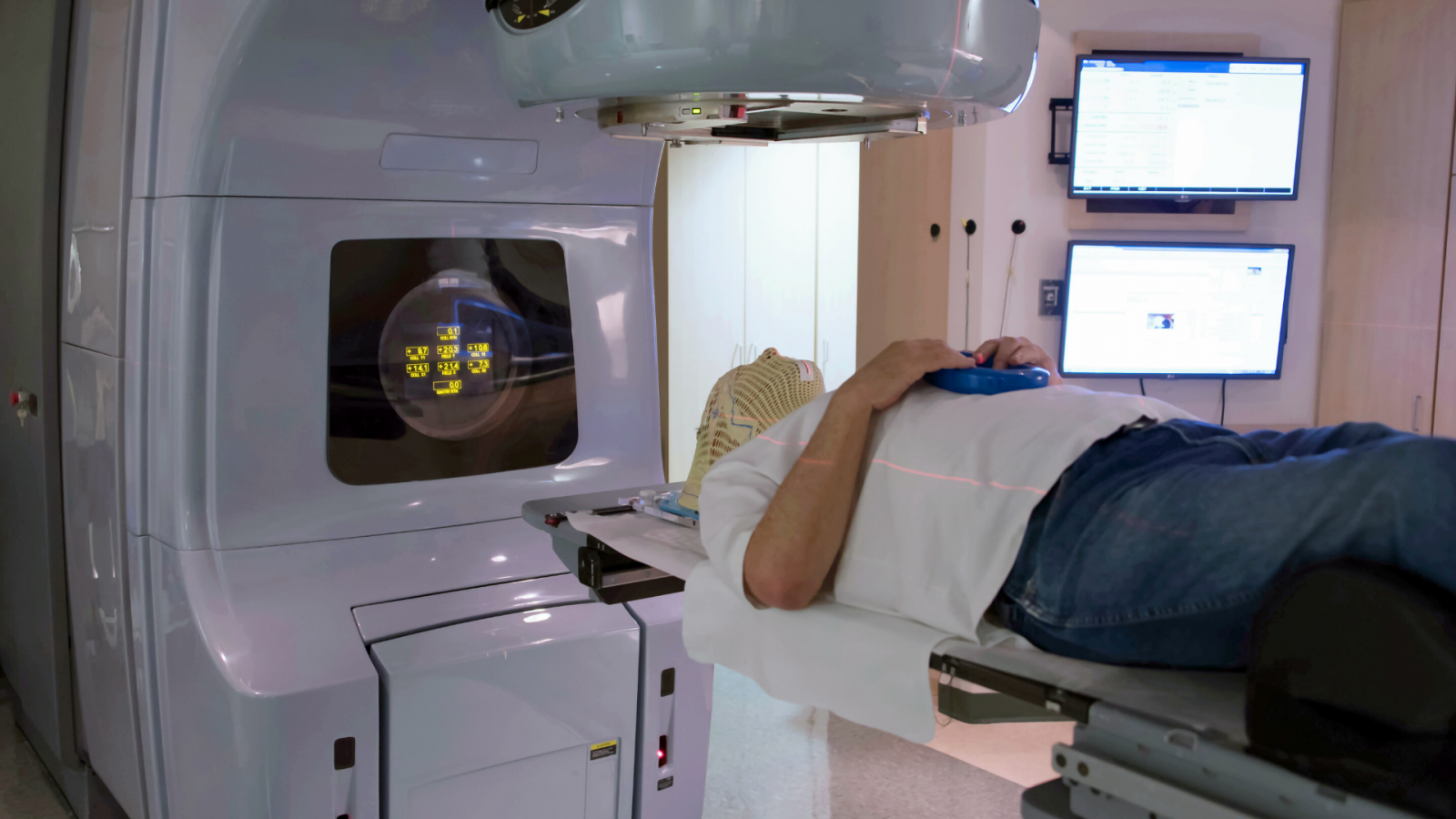Radiotherapy for metastatic prostate cancer

Radiotherapy is a treatment that uses radioactivity to control cancer and relieve symptoms such as pain. Two types of radiotherapy can be used for metastatic prostate cancer:
- External radiotherapy
High-energy rays are aimed at the cancer. - Radioactive injections
Radioactive liquid injections to help with prostate cancer that has spread to the bones.
External radiotherapy
Planning your treatment
Before radiotherapy is given, the radiation oncologist will plan how best to give your treatment. You will have to go to hospital for a planning session before you get your radiotherapy.
How much radiotherapy will I need?
Usually you will only need a short course of radiotherapy. You might have single treatments (fractions) or 2-3 weeks of treatment for pain relief.
Will I get side-effects?
Possible side-effects include:
- Urinary problems
- Bowel problems
- Discomfort at back passage
- Skin changes in the treated area
- Fatigue
With a short course of radiotherapy any side-effects are usually mild and reversible. Longer term (chronic) side-effects are much less common.
Read more about radiotherapy and its side-effects.
Radioactive injections for metastatic prostate cancer
Radioactive injections can help with symptoms of prostate cancer that has spread to the bones. They can shrink any areas of cancer in the bone by killing the cancer cells, which can relieve pain and improve your overall prognosis. Radioactive injections will not lower your PSA. Examples of radioactive injections are strontium 89 and radium-223 (Alpharadin® / Xofigo® (“zo-fee-go”).
Getting your treatment
You will normally have the injection every month in the radiotherapy department as an outpatient, so you shouldn’t need to stay in hospital overnight.
Will I get side-effects?
Side-effects are mild and may include diarrhoea and sickness, and sometimes reduced levels of blood cells. Bone pain may get a little worse before it gets better.
Will I be radioactive?
After the injection, a small amount of radiation remains in your urine, poo (stools) and blood. It is best to use flush toilets instead of urinals afterwards. This will reduce the risk of others being exposed to the radiation. Do flush the toilet a couple of times after passing urine as well. Be careful of any spills of urine or blood, but it is quite safe to be around people and pets. The radiation usually lasts about 7 days. Your doctor or nurse will discuss any special precautions with you before you go home.
For more information
Phone
1800 200 700



